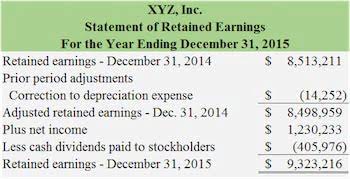The Future Of Accounting: How Will Digital Transformation Impact Accountants?
This post was written by Kenon Thompson on February 15, 2021

Costs incurred during the Post-Implementation and Maintenance Phase are generally https://www.bookstime.com/articles/scalefactor expensed as they are aimed at maintaining existing software rather than enhancing its value. These activities involve routine, ongoing efforts to correct errors or keep the software operational after it’s been implemented and put into use. Withum and Teachable have been working together for a relatively short time, but a solid relationship has been built to prepare Teachable for getting to that next level of growth whether it be a new funding round or even an IPO.
Strategies for Scaling Financial Data and Balance Sheet Management in Tech Startups
When addressing the accounting of software development costs, technology companies face complex decisions about whether to capitalize or expense these costs. The following frequently asked questions provide clarity on international financial reporting standards, GAAP regulations, and common accounting practices within the industry. In the fast-paced world of tech, implementing best accounting practices is crucial to maintaining financial health and sustainability. From revenue recognition and R&D capitalization to managing cloud computing costs and stock-based compensation, each practice plays a vital role in accurate reporting and strategic decision-making. By adhering to these best practices, tech companies can ensure their financial statements are transparent and compliant.
- In the past, accountants struggled when making the transition to more advanced technologies.
- Accurately allocating the value of each component and applying the correct tax treatment requires robust accounting practices and often results in tax audits to ensure compliance.
- For tech startups seeking investors or considering acquisition, preparing for due diligence and audits is essential for building trust and demonstrating financial stability.
- Respondents also cited resource constraints as a top concern, specifically an ongoing shortage of qualified staff.
- Cflow is an AI-powered workflow automation platform that offers effective solutions for intercompany accounting and reconciliation.
- IT companies often rely on unconventional business models like software-as-a-service (SaaS) or subscription-based models, which can complicate revenue recognition.
Best Practices for Accounting for Tech Companies

Tomorrow’s accountants will play a more creative and strategic role in their companies. As a result, their businesses will not only enjoy more efficient workflows and reap more useful insights from their accounting processes, but help strengthen their own resiliency, agility and competitive footing. Companies differentiate between these costs by considering the stage of the development. Research costs are usually expensed as they are incurred since future economic benefits are less certain. Development costs can be capitalized once technological feasibility is established.

Factors we use to Rank Accounting Software For Technology Companies:

This partnership will enhance AV’s ability to meet the evolving needs of the Department of Defense (DoD) and allied nations with a robust suite of innovative solutions. This transaction brings together AV’s established portfolio of cutting-edge defense solutions with BlueHalo’s emerging and industry-defining technologies. This union will provide customers with a comprehensive suite of solutions across multiple domains—including air, land, sea, space and cyber.
- For SaaS and subscription-based companies, deferral and timing are essential considerations.
- It also identifies and flags potential risk-causing factors in the transactions and consolidates the statements.
- If the accounting profession continues investing in technology, we have the chance to lead the way as we have always done and create a brighter, technology-enabled future for all.
- Both the skill set and the job description for tomorrow’s accountant will be greatly expanded, while still hewing to the core competencies of the profession.
- When one entity moves its assets like equipment, machinery, or even real estate to another within the same parent company, it is referred to as an asset transfer.
- Investing in or otherwise being in the business of selling or using digital assets may present technology entities with a host of opportunities but also unique accounting challenges.
- Using technology industry accounting, including many GAAP (rules for financial reports), and tools like fintech for payments, helps tech companies stay on top.
Maintaining good records of all transactions, including invoices, receipts, and payments, is essential for startups. Adopting this accounting method means that the business must account for revenue when it is earned, which gives leaders a more precise understanding of their future cash flows. Along with the use of non-traditional business models, tech companies must also keep up with an ever-changing business landscape and complex intellectual property rights. Software companies within the tech umbrella often sell products with SaaS pricing plans, requiring compliance with GAAP revenue recognition policies. Proper revenue recognition means that software revenue is recognized monthly as the SaaS software is used instead of all at once when cash is collected upfront under an annual contract. GAAP (generally accepted accounting principles), which apply to tech companies, are included in the FASB (Financial Accounting Standards Board) Accounting Standards Codification as numbered ASC sections by topic.
Financial Tracking
Stock-based compensation, such as unearned revenue employee stock options and grants, is a common practice in tech companies, especially for startups aiming to attract and retain talent. However, accurately calculating and reporting stock-based compensation is essential to ensure transparency in financial statements and avoid overstating profitability. For tech companies, especially those handling sensitive customer data, compliance with regulations like GDPR, HIPAA, and other data protection frameworks is critical. These regulations require companies to implement stringent security measures and data handling practices, which come with significant costs. Accurately accounting for these compliance-related expenses is essential for understanding the full financial impact of maintaining security and privacy standards.
- In contrast, maintenance costs for existing functionality are generally expensed as they’re incurred.
- These regulations have raised the stakes for non-compliance and organizations find it hard to execute risky transactions leading to regulatory issues.
- Tech companies know they need to do more than just manage current trends, they need to anticipate future shifts as well.
- One thing that struck me at the conference is that people’s perception of what is possible in the future is still based on their current experience.
Mastering Accounting for Tech Companies: The Ultimate Guide to Industry Accounting in the Technology Sector
This rapid expansion can complicate financial planning, cash flow management, and revenue recognition. Startups need to adapt quickly to changing financial circumstances, requiring a more dynamic approach to accounting. Tech companies incur R&D costs to create and significantly improve products developed by engineers for electronics and by software developers and R&D for services. GAAP covers (1) accounting for R&D costs (codified in ASC ) and (2) how the parties paying and receiving funds handle accounting for an R&D funding arrangement (ASC ). U.S. income tax laws offer an R&D tax credit for increasing research activities. In the tech industry, different metrics and KPIs (key performance indicators) are used for software companies, electronics companies, and IT service organizations.
Accounting can be complicated further by complex cap tables and ambitious fundraising plans, another characteristic of many tech businesses. For companies that sell software as a service accounting for tech companies (SaaS), it’s important to follow specific rules on when to count sales as income. This makes sure that a company’s financial reports are fair and follow regulatory requirements. Key Performance Indicators (KPIs) are like the high scores that help businesses understand how well they’re doing.
TweetThis entry was posted on Monday, February 15th, 2021 at 10:22 am and is filed under Uncategorized. You can follow any responses to this entry through the RSS 2.0 feed. You can leave a response, or trackback from your own site.